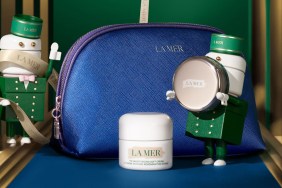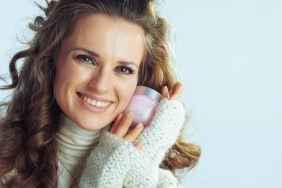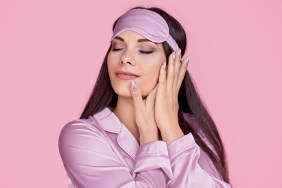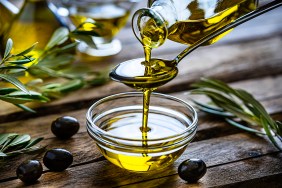We all know what you put inside your body is important. Eating a proper diet rich in vitamins and low in fat is essential to the health of your overall body, including your skin, hair and nails. But what you apply to your skin is just as important. Incorporating antioxidant-rich skincare products as part of your daily beauty regimen is an easy way to counteract the havoc that free radicals wreak on your skin. By reducing their damaging effects, your skin will look clearer, smoother and more youthful. From A to Z, here are the top anti-aging vitamins for optimum beautifying benefits.
Vitamin A
“Vitamin A is one of the best proven ingredients to banish acne, improve skin turnover and provide anti-aging, collagen-boosting effects,” says celebrity dermatologist Dr. Annie Chiu. In other words, it is the closest ingredient we have to the fountain of youth. Look for anti-aging skincare products containing retinoids, common vitamin A derivatives, such as retinol and retinyl palmitate to help minimize fine lines and even skin tone and texture.
Vitamin B Complex
There are eight vitamins, B1, B2, B3, B5, B6, B7, B9, B12, that form the vitamin B complex. Though these essential nutrients work in tandem, each has its own specific benefits, from promoting healthy hair, skin and nails to preventing heart disease and cancer. “Niacinamide, which is derived from vitamin B3 (niacin), is also an anti-inflammatory for the skin when taken orally. It also has antioxidant effects and decreases transepidermal water loss topically, making its use in anti-aging ingredients important,” says Chiu.
Pantothenic acid, aka vitamin B5, minimizes skin spots and redness. Biotin (vitamin B7) is often taken to encourage healthy hair and nail growth. Pregnant women are encouraged to take folic acid (vitamin B9) to ensure healthy neurological development in their babies. But the vitamin also has beautifying benefits as well. Folic acid deficiency can lead to premature graying and hair loss. The vitamin plays an important role in hair growth by renewing the cells that aid the growth of hair. “Recent evidence also suggests topical folic acid may increase firmness of the skin,” adds Chiu.
Vitamin C
You often hear of the immune-bolstering effects of this powerful vitamin, but it’s also championed for its collagen regenerating and skin clarifying capabilities. “Vitamin C is brilliant. It is a coenzyme in the production of collagen and it truly brightens the skin and decreases discoloration,” raves Chiu. But not all vitamin C is the same.
There are many different types; L-ascorbic acid, ascorbyl palmitate and tetrahexyldecyl ascorbate. L-ascorbic acid is the most potent, but it is also the least stable and loses its stability when exposed to light. Ascorbyl palmitate and tetrahexyldecyl ascorbate are both pretty stable, but they are not as powerful or as effective as L-ascorbic acid. L-ascorbic acid can sting and irritate, however, so the other types of the vitamin are the better options for sensitive skin.
Vitamin D
Vitamin D is essential in building strong bones and maintaining a healthy immune system. Topical vitamin D is commonly used to treat psoriasis. “Prescription forms of vitamin D (calcipotriene) decrease skin inflammation and excessive skin turnover for more calm, less flaky skin,” says Chiu. The jury is still out, however, on the effectiveness of over-the-counter treatments. “Topically applied over-the-counter forms of vitamin D may give some of these benefits, but studies have yet to prove with certainty that topical OTC vitamin D undergoes the correct chemical modifications in the skin to render it an active ingredient,” explains Chiu.
Vitamin E
Beauty-wise, most women utilize vitamin E oil to condition dry, brittle hair, soften cuticles and soothe chapped lips and skin. “Vitamin E is a great antioxidant to fight against free radical damage from sun or pollution. It is often found in topical combinations with other antioxidants, such as green tea or vitamin C, as vitamin E can further stabilize other antioxidants, making them more effective,” says Chiu.
By fighting off free radicals, we can reduce wrinkles and keep our skin youthful-looking. Free radicals can also impair the healing of scars; applying vitamin E to the affected area can help accelerate the healing process.
Zinc
“Zinc has anti-inflammatory activities that can calm irritated or broken-out skin,” says Chiu. It regulates cell production and turnover and can help reduce the amount of natural oil your skin produces, making it a great acne-clearing product.
Though vitamins can do wonders when applied topically to your skin, incorporating a multivitamin into your regimen is highly recommended. It will help cover many nutritional deficits, especially if your diet is lacking. That way you’ll ensure that your whole body gets the necessary nutrients to properly thrive. Plus, you’ll have the added benefit of treating your body internally as well as externally.








